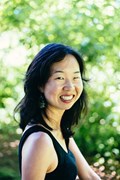Nina Murray: A Season of Gathering

I'm not sure if I've had a season of scattering or of gathering―and aren't those two really the same thing?―but I did come in contact with many new poets.
Whitney Jones delivers nothing short of a reckoning in her debut The Old Works (Heartland Review Press, 2018). Jones is a poet of the coal country, where “the old works” is both a reference to a specific exhausted mine, and a pun on the persistence of the community coal mining still barely sustains. In resonant, assured lines, Jones chronicles the natural―and metaphysical―”process of sinking/into sediment, of standing/under pressure” on the ground that is literally slipping from under her speaker's feet. “[B]y the time your kids/are old enough to remember,/they won’t.”
Another debut from Heartland Review Press is Ted Higgs’ chapbook Archipelago (Heartland Review Press, 2016), followed by the 2019 release of his full-length collection Plank by Plank (Heartland Review Press, 2019). I read these back-to-back, and am glad to have done so. Archipelago references the Greek islands around the mainland town of Sounion, near where Higgs began his overseas Army career. The poems in this volume are haunted by love--sometimes desperate, sometimes tentative and half-recognized through the scrim of mythos Higgs erects. The speaker’s knowing poise―“Take up your shield, my friend, the time has passed/for reverie”―tints Higgs’ world with melancholy. In Plank by Plank, the sentiment persists: it is a book of experience, a chronicle of arrivals to places that are not what they seem, or what they had been imagined.
Love is also at the center of Jessica Mehta's forthcoming Bad Indian (Brick Mantle Books, 2020). Bad Indian is Mehta's ardent ode to the woman she chronicles herself becoming: the protagonist of her own life. A hero. A someone who knows, with supreme clarity and in full possession of metaphor, what her “desires are worth.” Someone, crucially, who looks back without undue guilt, dissects shame, calls injustices by name, and can say to herself and the one she loves, “neither of us/are the wrong kind of Indian.”
David Nilsen: Into the Sparkling White

“The world is a Russian / Wood of wolves and white,” writes Cynthia Cruz in the poem “Ghost” from her 2018 collection Dregs (Four Way Books). “Where among the shattered / Voices are you?”
Across several collections now, Cruz has juxtaposed the sparkling white of her frozen childhood diorama against the dark abyss of an adult mind left trying to cope with the persistent cold of that static ice age. Cruz is a poet obsessed with the wounds and wonders of youth, and the winter imagery of her work traps her early years in a snowglobe she rolls and ponders throughout her poems. In both How the End Begins and Dregs, she redeems the teenage-tragic tenor of her themes with a sincerity of voice and total commitment to her vision. These poems are a swirling blizzard of atmospheric synthesizers, cruel fairy tales, feathered morbidity, and the aching beauty of loneliness.
Ali Shapiro: Seeking an Unbreakable Fever

Reviews of Andre Aciman’s 2007 novel Call Me By Your Name (and its 2017 movie adaptation by Luca Guadagnino) often refer to variants of agony: “the agony and ecstasy of young love” (Entertainment Weekly), “the agony…of waiting and wondering” (Screencrush), and so on. But agony-philes may find Find Me, Aciman’s recently released sequel to CMBYN, disappointingly…satisfying, which is to say not very satisfying at all. Find Me is short on agony because it’s short on foreplay in both form and content. In CMBYN, Elio spends page after luscious page reeling from a single shoulder-squeeze, still half a book away from consummating his affair. In Find Me, by contrast, Elio meets an older man at a concert, gives their initial flirtation a lukewarm review (“It was the kind of talk that was not as oblique as I would have wished”—right, same!), and then, a mere ten pages later, finds himself wondering, about this same love interest: “Could two people who’d basically spent less than four hours together still have so few secrets from each other?” I mean…could they? Could they really? Suffice it to say, no peaches were harmed (or…honored?) in the making of Find Me, because the lovers aren’t separated long enough to get horny for foodstuffs.
So perhaps CMBYN’s twin star is not Find Me but Agony, a collection of comics by Mark Beyer originally published in various alt-comics magazines in the 80s and re-released by New York Review Comics in 2016. Drawn in Beyer’s distinctively demented, hallucinatory style, Agony chronicles the (mis)adventures of Amy and Jordan, who may be a couple or may just be bound together by their situation, which some might view as a specifically New York-y purgatory involving creature-infested apartments, vicious landlords, and monstrous muggers, but others might recognize as an only slightly exaggerated depiction of the human condition. On the surface, the zany agony in Agony might seem quite unlike the swoony agony in CMBYN, but upon closer inspection, they share some key features. Take, for example, the movement of time: in one panel, Amy makes a comment to Jordan, and his response comes “two weeks later” in the next panel. Elio would understand this slippage: “Twenty years was yesterday, and yesterday was just earlier this morning, and morning seemed light-years away.” And the trouble in both books is rooted in the body: Elio’s longing for Oliver makes him feel “fire like fear, like panic…my entire body on fire;” at one point in Agony, Amy’s leg dissolves in a sulfuric acid bath. So what if the hot, burning flesh is metaphorical in one book, literal in another? Agony blurs lines: between now and later, self and other, pain and pleasure. Like CMBYN, Agony offers readers the pleasure-pain of going all-out and all the way into a feeling, a moment, a world in which everything is heightened to a fever pitch—and what reader would ever want the fever to break?
Shelley Wong: A Chorus of Generosity, Garlic, and Song

Michelle Brittan Rosado’s debut collection Why Can’t It Be Tenderness (University of Wisconsin Press, 2018) is astonishing in its simultaneous expanse and meditative intimacy. Her deeply explored poems on diaspora, love, and Central California gather power with layered articulations, blending memory, family history, and imagination. In these poems of searching, nothing seems to hold, paradoxically creating a sense of eternity in Rosado’s line. This is a collection of generosity and declaration, led by a speaker who will dwell in fleeting moments and sing of what was found there (from the title poem: “Change your idea of brokenness. / Today’s salt / is mine, and tomorrow’s. / Look for me / on the horizon. I am as small and endless as sand.”).
Opening with the line “You deserve your beautiful life,” Loves You by Sarah Gambito (Persea Books, 2019) is the hybrid book we have all been waiting for, but didn’t know it: a poetry and recipe collection of abundance and care. This book bursts with open-hearted Filipino American pride and power, in ecstatic and aching lyric leaps (from “Cento”: “I saw the small likeness of a mother / floating in a river. / I heard my sister say / on the phone it’s not right how they did that. / Her voice breaking into fingerprints.”) paired with soul-satisfying meals such as “Take Your Time” pasta, involving San Manzano tomatoes and 25 cloves of garlic. Organized in sections using the five tastes (plus umami), her poems are electric, an altar to the power of food to express love and belonging.
To read Yearling by Lo Kwa Mei-En (Alice James Books, 2015) is to enter a choral dimension. Her poems resist, transfix, and animate; they are both minimal and maximal, shot through with becoming in its many forms—enduring, wanting, collapsing, always metamorphosing. The first poem in the collection is titled “Ariel,” and I see her as part of Sylvia Plath’s searing lineage, along with Korean poets Kim Hyesoon and Kim Yideum, in further opening poetry to the overwhelming and often unspoken experiences of women and expanding how a poem can live and sing on a page. Mei-En’s speakers take the forces of their threatened circumstances and throw them back with mesmerizing, explosive power and vulnerability (from “The Body That Has Something to Say”: “The body that has something to say / knows better than that. / Lights everything on fire with one hand / and tends coals with the other.”).
Reviewer Bios
Nina Murray is the author of Minimize Considered (chapbook, Finishing Line Press, 2018) and Alcestis in the Underworld (2019, Circling Rivers Press). Her poetry has appeared in numerous journals, including Ekphrasis and The Harpoon Review. Her translations from Russian and Ukrainian include Peter Aleshkovsky’s Stargorod, and Oksana Zabuzhko’s award-winning The Museum of Abandoned Secrets. She grew up in Lviv, in Western Ukraine, and holds advanced degrees in linguistics and creative writing. As a member of the U.S. diplomatic corps, she has served in Lithuania, Canada, and Russia.
David Nilsen is a freelance writer living in Ohio. He is a National Book Critics Circle member, and his literary reviews and interviews have appeared or are forthcoming in The Rumpus, Gulf Coast, The Millions, The Georgia Review, and numerous other respected publications.
Ali Shapiro teaches writing at the University of Michigan's Stamps School of Art & Design. Her comics, poems, essays and reviews have appeared in various print and online journals, including Gertrude, Muzzle, Prairie Schooner, PANK, The Rumpus, and Electric Literature. More of her work is available on her website, ali-shapiro.com.
Shelley Wong is the author of the chapbook RARE BIRDS. Her debut full-length collection As She Appears is forthcoming from YesYes Books in 2021 and won the 2019 Pamet River Prize. Her poems have appeared in American Poetry Review, Gulf Coast, Kenyon Review, Massachusetts Review, and The New Republic. She is an affiliate artist at Headlands Center for the Arts and the recipient of a Pushcart Prize and fellowships from Kundiman, MacDowell Colony, and Vermont Studio Center.